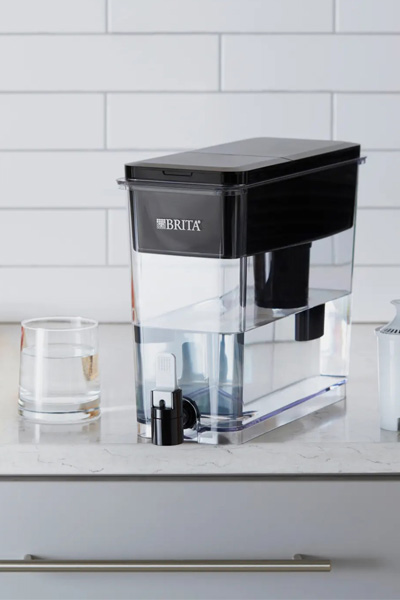Should you use filtered water for coffee? We explore the difference water can make to your morning cup
Everything you need to know about when to filter and why

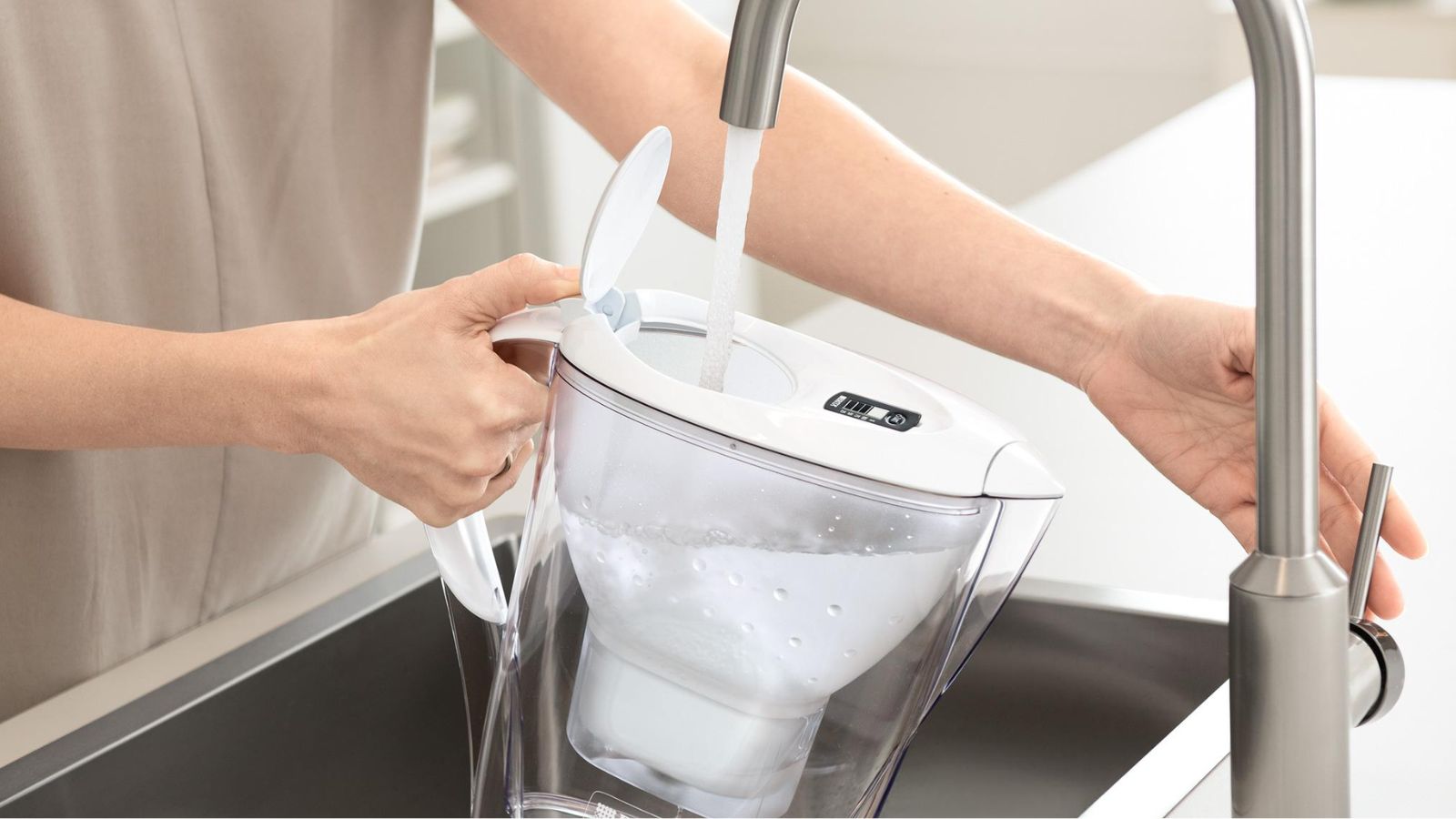
Using filtered water to make coffee might sound like the kind of thoroughness that only specialty coffee geeks would concern themselves with, but you should too. Having chlorine-free water can improve the flavor, consistency, and quality of your coffee as well as making your coffee maker last for longer.
There are plenty of essentials for any coffee station, including one of the best coffee makers, coffee grinders, and coffee canisters. Whilst you don't often see the best filter jugs in that list, if you care about your coffee, they're always there.
The minerals in unfiltered water can affect the flavors of your coffee. Impurities absorb coffee oils differently, making your cup unpredictable. Equally important, the scale will make it hard to clean your coffee maker. It will last much longer without scale.
Should you use filtered water in your coffee?
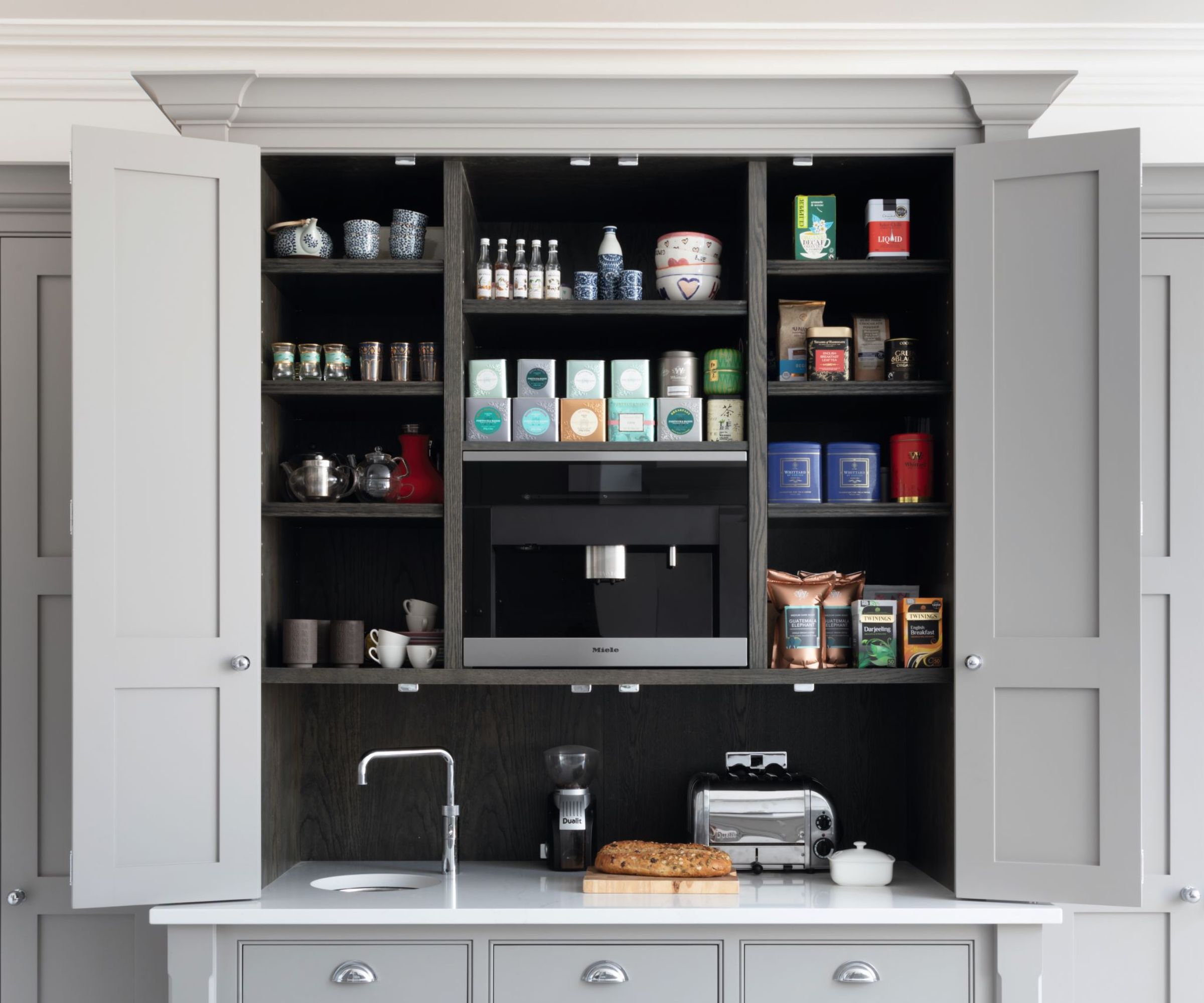
You might not think that filtered water could cause so much controversy within the coffee community, but it does. There are two camps arguing for and against using filtered water for coffee. Some believe the minerals offer health benefits as well as more fulsome flavors to your cup. Others say that the impurities affect the absorption and extraction of coffee oils, meaning that unfiltered water gives a less delicious cup.
I've spoken to experts to find out the pros and cons of making coffee with filtered and unfiltered water. I've also got some expert recommendations for tried-and-tested water filter jugs.
The argument for using filtered water in coffee
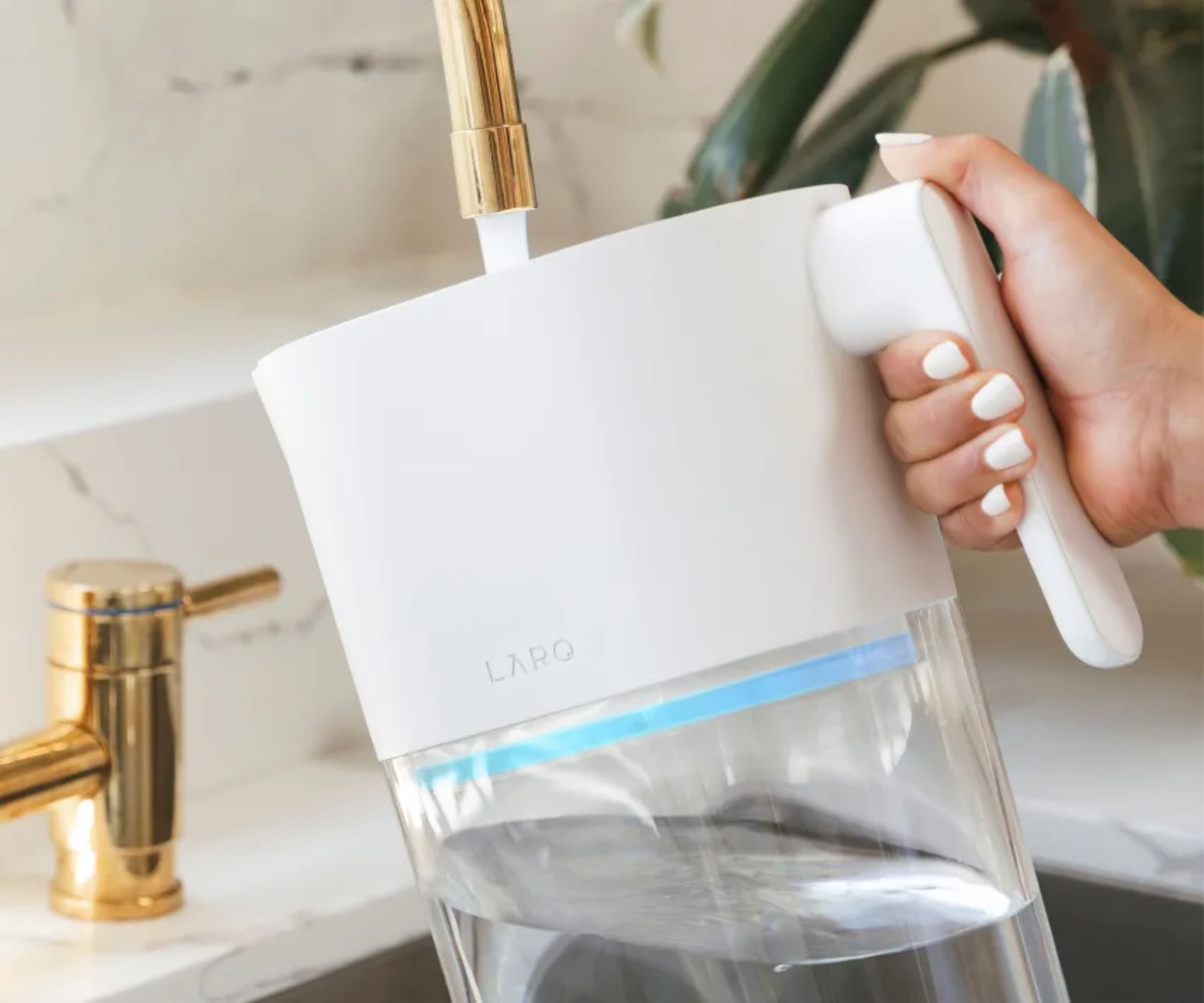
Team filtered water is undeniably a bigger and louder group within the coffee community. You can divide the logic for using filtered water to make coffee into three camps: flavor, consistency, and cleaning. Here's what the experts say.
Flavor
I spoke with Heather Perry, two-time US barista champion and coffee industry expert, about whether people should use filtered water in their coffee. She said that 'coffee is 98% water, so your coffee is only ever as good as your water. If you don't drink tap water, don't use it to make coffee.' Plenty of people that I interviewed said that they wouldn't even use tap water for their flowers, so using it for coffee was a straight no.
Design expertise in your inbox – from inspiring decorating ideas and beautiful celebrity homes to practical gardening advice and shopping round-ups.
Heather told me, 'I only use filtered water when I'm making coffee at home because it makes a big difference to the flavors of the coffee. Many factors, including water characteristics, contribute to the finished flavor profile, body, and overall quality.'
Consistency
Kayla Stavridis, barista and coffee expert, says that 'the mineral content and pH level of water can affect the extraction of coffee during brewing. Filtered water often has a more balanced pH and optimal mineral content, enhancing the overall extraction process and ensuring that each cup reaches its potential in terms of aroma and taste.'
Similarly, Heather Perry, who runs a series of cafes in Southern California, called Klatch Coffee, says 'We use high-end commercial water filtration systems in order to keep consistency amongst the flavor of our coffee as well as our coffee equipment in good condition.
'For home coffee enthusiasts, one thing to be careful of is using a filtration system that wipes your water of everything, good and bad. We want to maintain a lot of the minerals that are water because they add flavor and aromatics to the coffee, while we take out the components that add a negative perception to the coffee. Something as simple as a pitcher equipped with a charcoal filter (such as this Brita one from Walmart) can be filled via your tap can do a really nice job of doing just enough. Same as in-line filters at the kitchen faucet and refrigerator are also a good solution.'
We've tested a number of water pitchers and here are our three favorites:
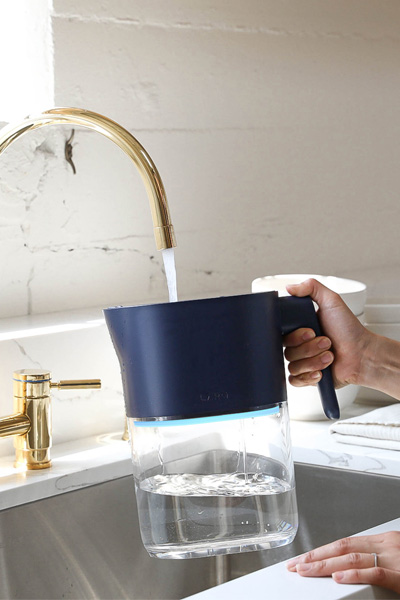
Ask anyone which water filter is the best and they'll tell you that it's the LARQ. The dual-filtration helps to keep all the harsh compounds out, ensuring your water tastes consistently delicious. There's even a rechargeable lithium polymer battery that works to destroy bio-contaminants at a molecular level, including viruses and mold.
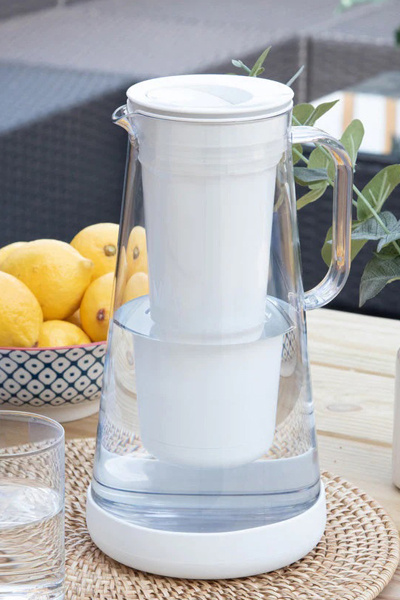
We love this pitcher both for its style and filtering efficiency. It's available in glass or BPA-free plastic, so you can take your pick. It comes with charcoal microfilters, which ensure your water tastes great whilst naturally attracting contaminants and softening water, enhancing the coffee's flavor.
Cleaning
The final, but equally important, reason that experts recommend using filtered water is to prevent scale build-up on the heating elements. Kayla Stavridis, barista and coffee expert, says that 'hard water can cause limescale deposits in your coffee machine, potentially damaging it over time and affecting its efficiency. Using filtered water reduces the risk of these mineral build-ups, prolonging the life of your coffee maker.' If your coffee maker already has limescale on it, we have plenty of advice for how to clean your coffee maker.
The argument against using filtered water in coffee
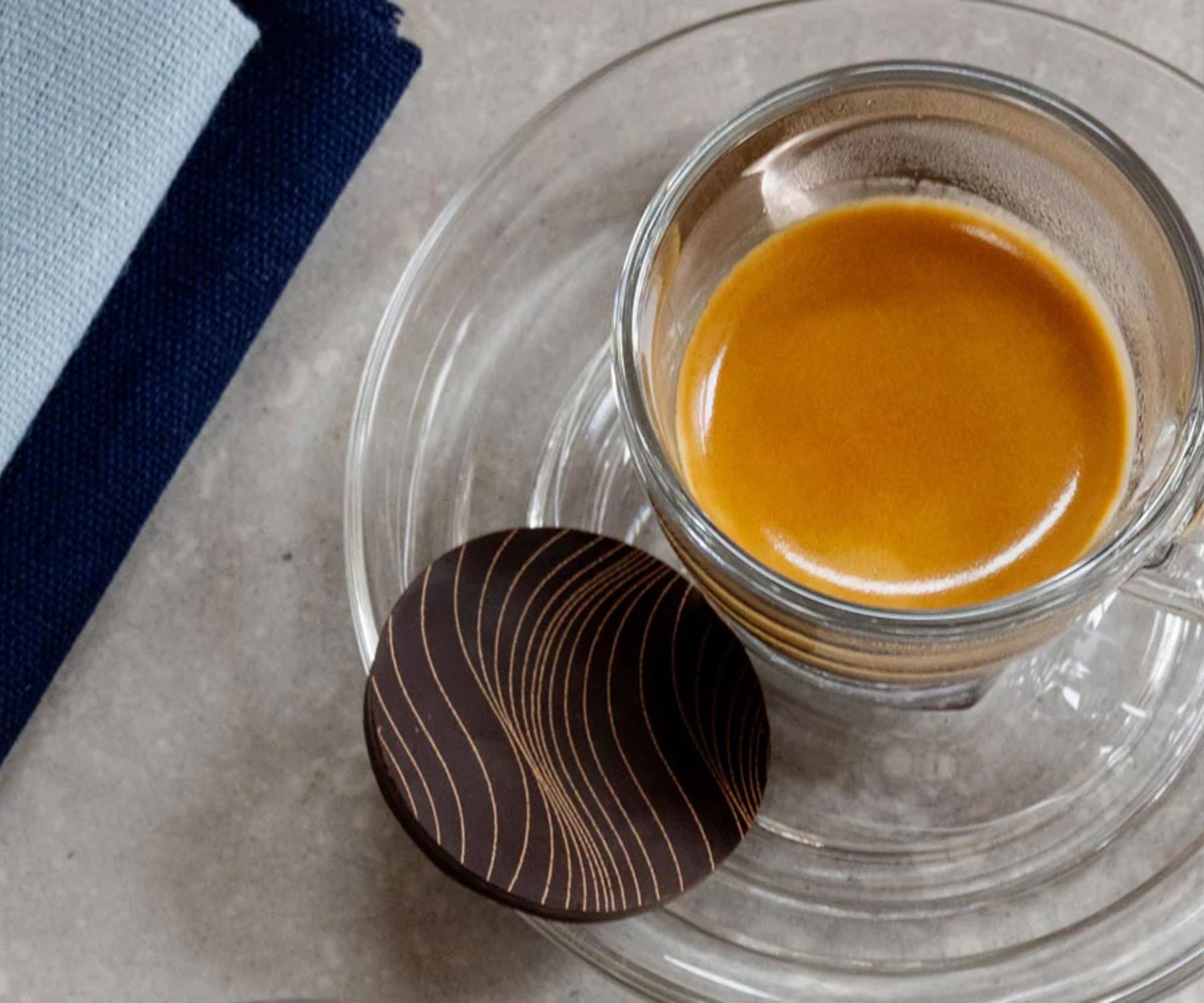
There isn't really an argument against using filtered water in coffee, but plenty of people caution against complete filtration. Whilst you might want to remove chlorine and heavy metals from your coffee, you might not want to take out some of the natural minerals that are good for your health and, potentially for the flavors of your coffee.
Jee Chloe, Tea Sommelier and coffee expert, said, 'One morning, I brewed a fresh pot of coffee using my typical tap water and was disappointed by the flat, almost stale taste. Out of curiosity, I tried brewing another pot with filtered water, and the difference was night and day – suddenly, the coffee burst with rich, vibrant flavors I never knew were hiding in those same beans. From that day on, I became a convert to the filtered water camp for all my coffee brewing.
However, that's my personal preference. I know plenty of people who prefer unfiltered water. The best way is to experiment and see what you like. Brew the same coffee once with tap water and once with filtered water, and see if you can taste a difference. You may notice the filtered version tastes brighter, smoother, or even a little sweeter.'
Jee also says to make sure that your beans are the best quality possible. 'Using freshly roasted beans, the right brewing technique, and good water as the base will make a delicious cup of coffee,' says Jee. You can never underestimate the basics.
If you want to get into the geeky specifics of the water minerals, Theo Chan, managing editor of Coffee Roast, says that 'minerals like magnesium and calcium can enhance the extraction process and improve the flavor profile of your coffee. These minerals help to bring out the coffee's natural flavors and can provide a more balanced taste. Many high-quality coffee shops use water with specific mineral content to ensure consistent and optimal coffee brewing.
However, it's important to use the right balance of minerals, as too much or too little can negatively impact the taste. Some specialized water additives designed for coffee brewing are available to help achieve the ideal mineral composition. Brands like 3rd Wave Water specialize in providing the right balance.
So, if you want to look after your coffee maker and err on the side of caution, it's a good idea to use filtered water to make coffee. However, if you want to leave some of the minerals in your water, it's a good idea to look for filters that will leave some of the goodness in your water.
FAQs
What should I use to make coffee if I don't have filtered water?
Heather Perry, two-time US barista champion and owner of Klatch Coffee, recommends buying bottled, pre-filtered water to use for coffee. She says to 'be careful as not all waters are created equal and they will influence the flavor of the coffee, some for positive and some negative.
Third Wave Water makes a mineral additive designed to be dissolved into distilled or reverse osmosis or distilled water, resulting in water that perfectly meets the Specialty Coffee Association’s standards. This is a great alternative if your home has very hard or soft water.'
Does a reverse osmosis filter system clean the water enough for coffee?
Reverse Osmosis Systems, installed under your sink, are an excellent and easy alternative to a filter jug. This technology offers superior purification, removing nearly all dissolved particles and contaminants.

Laura is our eCommerce editor. As a fully qualified barista, she's our expert in all things coffee and has tested over thirty of the best coffee makers on the market. She has also interviewed Q-Graders and world-leading experts in the coffee industry, so has an intimate knowledge of all things coffee. Before joining Homes & Gardens, she studied English at Oxford University. Whilst studying, she trained as a master perfumer and worked in the luxury fragrance industry for five years. Her collection of home fragrance is extensive and she's met and interviewed five of the world's finest perfumers (also known as 'noses'). As a result of this expansive fragrance knowledge, she always puts quality and style over quantity and fads. Laura looks for products which have been designed simply and with thoughtful finishes.
